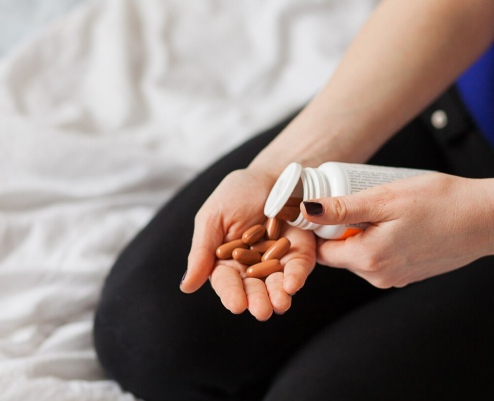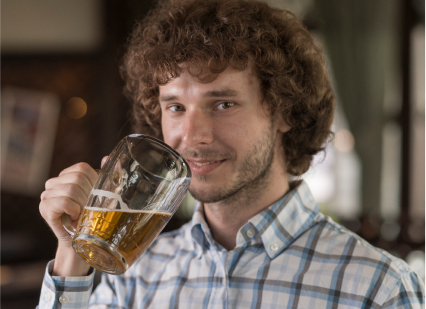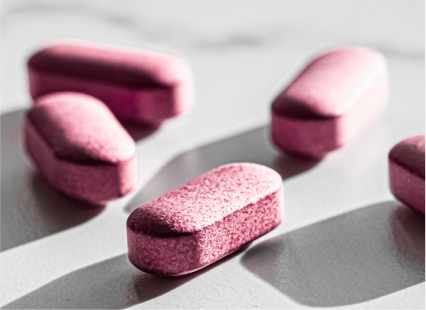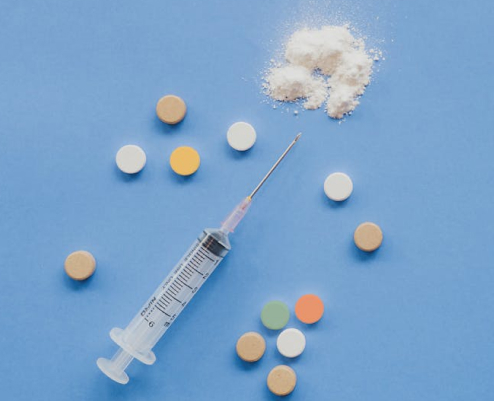Suboxone is a prescription medicine used in opioid addiction treatments. The nature of the way suboxone works means that opioid abusers will find it increasingly difficult to get a high from their habitual substance of choice. Suboxone itself can be addictive, and there is a danger of mixing suboxone and cocaine, which is no longer unusual with the rise of the polydrug use trend.
Despite suboxone being a legal pharmaceutical, many adverse drug interactions can arise when combined with other substances; combining suboxone and cocaine is only one of those dangerous combinations. This article will explore the topic of simultaneous suboxone and cocaine use, which are surprisingly interconnected. We would like to warn you about the consequences of mixing suboxone and cocaine and provide you with information on suboxone treatment and cocaine treatment in Florida.
Skip to:
Why Mixing Suboxone and Cocaine is Dangerous
As mentioned before, suboxone is a useful drug in medication assisted treatment. Suboxone (or, to be more precise, the buprenorphine portion of suboxone) creates a “ceiling effect” that prevents opioid receptors from experiencing the full effect of an opioid. This limits the euphoric sensation those drugs can generate and is one reason why suboxone can be so effective in breaking the cycle of opioid addiction.

Knowing suboxone´s purpose, you might wonder how one goes about combining suboxone and cocaine. As with other polydrug uses, the answer is the heightened euphoria resulting from it. Additionally, people who enter an opioid addiction treatment often have a history of using cocaine too, and they may continue to use cocaine while on suboxone, especially if they are receiving opioid treatment in a less controlled environment, like an outpatient setting.
Mixing suboxone and cocaine, however, can have deadly consequences since suboxone is an opioid-depressant medication, and cocaine is a stimulant. For instance, suboxone dampens the effects of cocaine, leading individuals to start taking much higher doses of cocaine than they would have otherwise. This, in turn, greatly increases the likelihood of overdosing and death.
Other than this, there are other dangers to combining suboxone and cocaine. To name a few:
- Reducing the suboxone effect. The co-occurrence of suboxone treatment and cocaine abuse has been shown to reduce the effect of the buprenorphine portion of suboxone and, with that, reduce the positive effect of opioid addiction treatment.
- Increasing the risk of overdose. The nature of suboxone reduces the effect of the drug used simultaneously. If a person uses opioids and suboxone as a way to detoxify on their own or uses cocaine and suboxone at the same time, the effect of the opioid or cocaine will be reduced, leading to their increased use to achieve the same effect. This can result in such high use that it results in an overdose.
- Replacing one addiction with another. Suboxone use typically starts as a way to address opioid addiction. If there is simultaneous cocaine use due to its addictive nature, a person might develop a cocaine addiction. Paradoxically, while trying to get rid of your opioid addiction, you might develop a cocaine addiction.

Prevalence of Combined Use
Data from 2019 research shows that the misuse of buprenorphine (a component of suboxone) is quite high, with some 700.000 people in the US misusing it that year only. As common motivators, pain relief and being hooked were named. The typical way of obtaining buprenorphine for misuse was through prescriptions, but not their own calling for the need to monitor suboxone prescriptions during substance abuse treatment.
Misuse of cocaine is way higher than suboxone misuse. According to the National Survey on Drug Use and Health, in 2019, around 5.5 million people used cocaine. Cocaine misuse significantly contributes to overdose-related deaths, with 1 out of 5 of them being related to cocaine use.
The instances of combining suboxone and cocaine are surprisingly high. Buprenorphine misuse was, according to already mentioned research, positively associated with polydrug use, including simultaneous cocaine and suboxone use. Studies also found that cocaine use increased tremendously during treatment programs and over 50% of patients were using it while receiving buprenorphine treatment.
Another disturbing trend regarding suboxone and cocaine use is that individuals with opioid addiction who use cocaine during treatment face much lower odds of success. The reason is not a pharmacological one, however. Instead, this indicates a lack of motivation, which is one of the most powerful predictors of a successful treatment. Motivation actually plays an even greater role in recovery than socioeconomic status, demographics, the type of drugs used, family situation, etc.

Get Your Life Back
Find Hope & Recovery. Get Safe Comfortable Detox, Addiction Rehab & Dual Diagnosis High-Quality Care.
Hotline (855) 459-2880Psychological and Motivational Factors
For anyone knowledgeable about polydrug use, the question of motivation for mixing suboxone and cocaine seems to have an obvious answer – combining suboxone and cocaine leads to a heightened experience of euphoria. However, since data shows that suboxone treatment and cocaine addiction often go hand-in-hand, you might wonder what causes patients in rehab to turn to other illicit drugs.
There are several potential reasons. One is simply a lack of understanding of the nature of addiction. Patients feel that their drug abuse issue only extends to one particular substance—that it’s just one type of drug that they cannot control their compulsions to use. However, countless studies have shown that individuals who struggle with any form of drug addiction have a much higher likelihood of becoming addicted to other types of drugs. They mistakenly believe that they can safely trade one type of drug for another.
Additionally, numerous studies have discovered that whether or not a person is going through withdrawal has a significant impact on their use of cocaine, in particular. Individuals use a different drug to distract from the discomfort of the substance that’s currently in their system. This short-sighted behavior continues the cycle of debilitating behavior and, in many cases, can worsen the withdrawal side effects.
Another potential reason is that rehab causes them to lose their primary coping mechanism. Stressors can have them scrambling to find anything that can numb the negative emotions they are feeling at the time. One of the tasks of rehab programs is to develop new coping mechanisms, as they can help you deal with daily stressors and prevent maladaptive behavior as a response to them.

Solutions to Drug Addiction
When facing a drug dependency or addiction, the safest way to get rid of it is by relying on professional help. Your recovery journey will start with the detoxification process. The detox process at We Level Up Lake Worth is always tailored specifically for each client, and depending on the substance you are struggling with, you might be suggested a cocaine detox Florida program or a suboxone detox Florida program. Additionally, it might be suggested that you undergo suboxone treatment and cocaine rehab in Florida, if you are struggling with mixing suboxone and cocaine.
The aim of our detox programs is to flush the drugs out of your system in a safe and supported way. Our staff takes care of you 24/7, monitors your health and progress, and ensures you are comfortable and at peace. The detox should be accompanied by psychotherapeutic treatments that aim to uncover the underlying causes of addiction, address them, and develop new, healthy coping mechanisms to address any future life challenges.
In the lifelong journey that is recovery, the risk of relapsing or using other drugs will always be present. One way to minimize the temptation to do so is by enrolling in an inpatient treatment program (also known as intensive addiction treatment). This type of setting provides a controlled environment that would make it difficult to acquire or use other drugs while in rehab and allows you to focus solely on recovery. It is especially beneficial for those struggling with addictions linked to depression or some other underlying mental health issue. In such cases, dual diagnosis treatment would be ideal to help address both those and the behavioral issues related to addiction.

Get Suboxone Treatment and Cocaine Treatment Today
One of the quickest ways to bring out the potentially lethal aspects of a drug is to combine it with other drugs, legal or otherwise. Even though Suboxone is a prescription medication, taking it with narcotics like cocaine, physician-prescribed medications, or even legal drugs like alcohol, caffeine, and nicotine can be deadly. No matter the type, doing multiple drugs at once is always, always, a bad idea. It can seriously impede the effectiveness of your addiction treatment, and in the worst cases, it can put you in deadly situations.
If you succumbed to the temptation of mixing drugs or misusing suboxone, seek professional help to set yourself free from addiction. Call We Level Up Lake Worth Florida treatment center. You´ll be able to talk to a member of our staff and get professional advice and recommendations for treatments that can help you live to your full potential.
Start a New Life
Begin with a free call to an addiction & behavioral health treatment advisor. Learn more about our dual-diagnosis programs. The We Level Up treatment center network delivers recovery programs that vary by each treatment facility. Call to learn more.
- Personalized Care
- Caring Accountable Staff
- World-class Amenities
- Licensed & Accredited
- Renowned w/ 100s 5-Star Reviews
We’ll Call You
Sources:
Copenhaver, M.M., Bruce, R.D. and Altice, F.L. (2007). Behavioral Counseling Content for Optimizing the Use of Buprenorphine for Treatment of Opioid Dependence in Community-Based Settings: A Review of the Empirical Evidence. The American Journal of Drug and Alcohol Abuse, 33(5), pp.643–654. doi: https://doi.org/10.1080/00952990701522674.
Han, B., Jones, C.M., Einstein, E.B. and Compton, W.M. (2021). Trends in and Characteristics of Buprenorphine Misuse Among Adults in the US. JAMA Network Open, 4(10), p.e2129409. doi: https://doi.org/10.1001/jamanetworkopen.2021.29409.
Wee, S., Vendruscolo, L.F., Misra, K.K., Schlosburg, J.E. and Koob, G.F. (2012). A Combination of Buprenorphine and Naltrexone Blocks Compulsive Cocaine Intake in Rodents Without Producing Dependence. Science Translational Medicine, [online] 4(146), pp.146ra110–146ra110. doi: https://doi.org/10.1126/scitranslmed.3003948.





